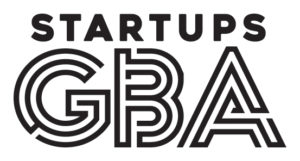
Before looking at the future of the Hong Kong startup ecosystem, it’s important to begin with the past. The Hong Kong startup ecosystem has seen tremendous progress during the past five years.
The most important factor has been the entrepreneurs themselves. Without entrepreneurs, there would be no ecosystem. To build teams, of course additional talent has been needed, and Hong Kong has seen a strong mix of immigration and inspired young people. Next, capital from angel investors and real estate from co-working spaces has provided the the basic resources for starting a company. The first accelerator in Hong Kong, AcceleratorHK, was started by my partner Stephen Forte and Paul Orlando, with a wave of new accelerators now following. Education was added to the mix when my partner Allison Baum brought General Assembly to Hong Kong, and there are currently several options for learning the basic skills about startups.
So what’s next?
First, we need more of everything. More entrepreneurs, more talent, more angel capital, more accelerators, more education and, yes, even more co-working spaces.
Second, we need to pass the mom test. Right now, entrepreneurship has entered the consciousness of the younger generation in Hong Kong. That’s a great start. But to really make it go mainstream, we need to convince all of the moms in Hong Kong, including the tiger moms, that entrepreneurship is serious option for their children. Of course we need heroes, but rather than simply creating idols for worship, it is important to show these moms that entrepreneurship is a diverse ecosystem where people with different skills can find successful and meaningful careers. Joining a successful and fast growing startup as an employee with equity is actually more rewarding than being the sole founder of a project that never makes it off the ground. Working as a service provider who supports the startup ecosystem is a meaningful way to give back to society. Becoming a lifestyle entrepreneur can provide the flexibility for people to balance work and life. As a startup ecosystem, we need to reach out to moms all across Hong Kong and get them on board.
Third, we need private sector investors, limited partners, in home grown early stage venture capital funds. All anecdotal evidence, both formal and informal, suggests that startups are able to raise angel funding in Hong Kong but when reaching Series A they typically look outside of Hong Kong for investors. Not only is this frustrating for the startups, it creates a real risk for Hong Kong that these companies will scale up their operations elsewhere just as they reach the sweet spot of growth. There are many institutional investors based in Hong Kong, but their investment focus is traditional sectors like property, foreign markets or later stage growth capital. Other countries have successfully built up early stage venture capital based on the foundation of local limited partners. Hong Kong is already a powerhouse global financial centre with strong growth and late stage capital but to build a sustainable startup ecosystem the connection between finance and startups needs to be strengthened.
Let’s make the next five years of the Hong Kong startup ecosystem as productive as the last five. To reach the next stage of evolution, we need more of everything and also two additional factors: passing the mom test and local limited partners for early stage venture capital funds. As Hong Kong legend Bruce Lee said, “There are no limits. There are plateaus, but you must not stay there, you must go beyond them.”
Tytus Michalski (@tytusm) is Managing Director of Fresco Capital – see his profile on Startbase.hk
